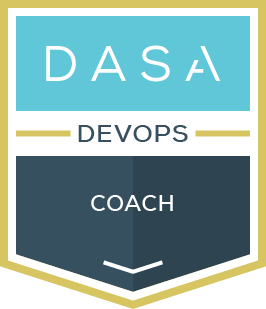84% percent of digital transformations fail. For the 16% that don’t, success requires a fundamental shift in how people think about how they interact and how they collaborate and work. Organizations have spent time changing people’s behaviors, cultures, and decision-making. To make this fundamental shift, these successful organizations have created ‘Psychological Safety’ for their people. They have built the competencies to guide the people-centric transformation journey without losing focus on business outcomes.
The industry is still emerging from the mass-manufacturing paradigm of the “software factory.” Most of the transformation approaches of the past have attempted valuable, stricter, process-centric, document-only models. These models represent an attempt at communication without conversation. The failure of the software factory model has created space for the rise of new, people-centric models like Agile, Lean, and DevOps. The DevOps model strongly argues that organizational culture is increasingly important in making such complex changes.
However, the DevOps model’s well-meaning attempts also fail when the focus is on processes and automation methods. They reinvent some of the software factory’s same mistakes on a smaller scale, creating “feature factories.” Therefore, it is vital to bring the attention of transforming organizations towards cultural shift conversations and organizational design before we think of automation. The focus must be on individuals, collective wisdom of teams, systemic thinking, and interactions at different levels.
16% successful organizations, in their pursuit of meaningful transformation in the modern economy, focus on a human-centered technological and process transformation as mentioned above. They know that humans have a uniquely powerful and flexible language. Therefore, to get the most out of these initiatives, these organizations are turning to the professionals who have:
- the abilities and skills to engage people in building a trusting workplace
- the art of conversation
- the art of giving candid feedback
- allowed safety for people to openly admit mistakes
- created space for learning from each other
- an awareness of how to overcome innate biases that work against collaboration and connection.
The DASA DevOps coach program is attempting to highlight the people’s side of the change paradigm with equal focus on process, automation, and driving integrative transformation with four focus areas: Culture, Organization, Process, and Automation.
Questions to ask yourself:
- Are you working in a feature factory?
- What skills and knowledge do organizations require to create more successful transformation stories?
- What skills do DevOps coaches need to shift the “feature factories” to truly humane-driven technical and process transformation?


DASA DevOps Coach
This three-day course is for individuals aspiring to guide teams and organizations through the complexities of DevOps transformations.
